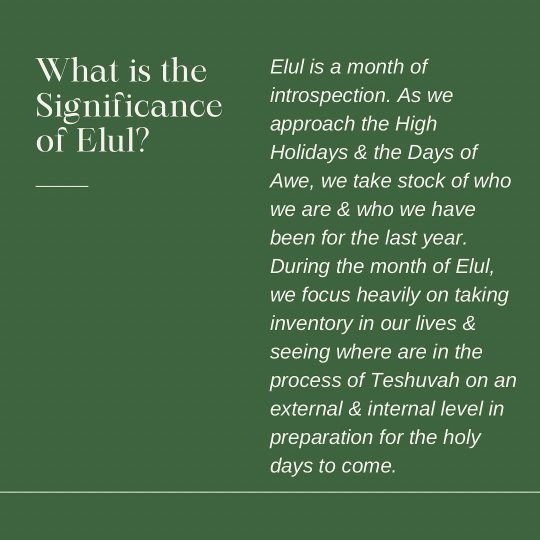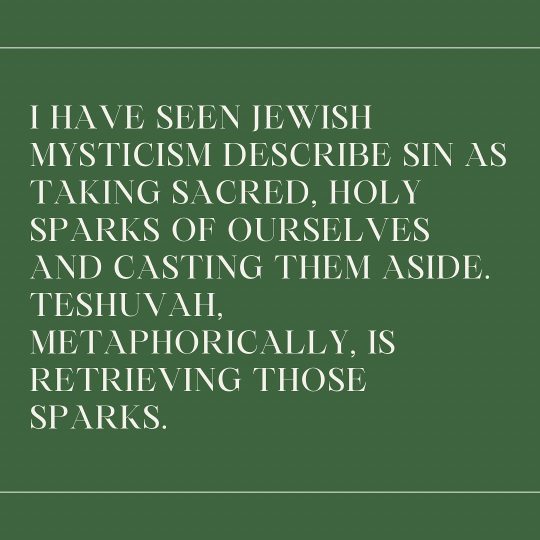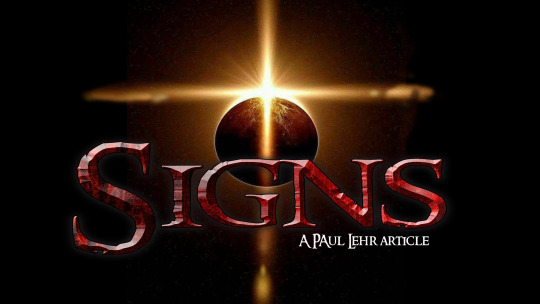#Teshuvah
Note
Hi! This is very random and I'm not sure if this is the sort of thing that there really is an answer to, but I was wondering, does Jewish theology or tradition have any kind of specific take on why the Pharaoh who Moses goes up against doesn't die when the first born do? The reason I'm asking is because I would assume that the first born of the previous pharaoh would have inherited the throne, but since Moses' Pharaoh doesn't die at that point he clearly isn't the first born. and I've mostly just experienced the christian version of the story which doesn't elaborate at all so I'm curious to know if the Jewish one does
There's no consensus but a common Midrash is so that A) he can live to see the consequences of his actions and B) eventually repent as a result of this.
There is a Midrash that the same Pharaoh from the Exodus story survived the drowning of the Egyptians in the Red Sea and made his way to Nineveh where he became king, and he was the same king of Nineveh who eventually repented in the Jonah story (Age is a bit wishy-washy in Midrash lol).
Forgiveness is a core tenet in Judaism, and we believe everyone has the potential to repent up until their death, but forgiveness is not given freely- it must be earned. There are four steps to Teshuvah (literally translates as "returning") in Judaism: 1) Charata- regretting one's actions. 2) Aziva- stopping the wrongful action. 3) Viduy- confessing one's wrongs to oneself and to the affected parties. If it was a wrong against G-d, one must apologize to G-d. If it was a wrong against a person, one must apologize to that person. 4) Kabalah Al HaAtid- Resolving to not do the wrongful action again and taking steps to prevent yourself from making that same mistake again.
Pharaoh regretted his actions in Egypt after he saw the devastation brought onto his people, but he didn't continue the process of repentance until Jonah came to shake him into action. We read the Book of Jonah every Yom Kippur to learn this lesson of repentance: That everyone is capable of righting their wrongs and that G-d has everlasting patience for us until we find our way back.
236 notes
·
View notes
Text
I think one of the most important things most goyim don't understand about Judaism is that there's a process for forgiveness, but forgiveness isn't required. And even then, the process of teshuvah requires more than just a simple apology.
It requires that one recognize that they have done something wrong, it requires that one regrets those actions, it requires that one strives to do better, it requires that one changes themselves to be a better person as to not repeat the mistake, it requires one to face the person they have wronged, admit their misdeeds, and declare their intention to do better.
If the offender's apology isn't serious enough, they repeat the same offending deeds, or something else happens where it's clear the apology was not sincere or the offender hasn't taken concrete steps to become a better person, forgiveness isn't required.
And even in the case where the apology is seen as sincere enough, the minimum required amount of forgiveness is "mechilah," which simply forgives a debt (physical or metaphorical) that is owed because of the offending actions. But the crime still exists. The crime is still there.
And EVEN THEN, one is not halachically obligated to offer mechilah. They may be morally obligated to as a sign of good faith, but in no way are they required to.
This is Jewish forgiveness. It is a process that takes time, energy, and trust. Sometimes, it's not granted, but when it is, it's granted because there is faith that the offender will become a better person and not repeat the crimes of their past, at least not intentionally (although that is a whole other topic).
243 notes
·
View notes
Text
Thursday Thoughts: Does Darth Vader Do Teshuvah?
Someone in a nerdy-Jewish Facebook group I’m a part of recently posed the question, does Darth Vader’s repentance in Return of the Jedi redeem him for his sins in the prequel trilogy? We’re currently in the month of Elul, the weeks leading up to the high holidays of Rosh Hashanah and Yom Kippur, so this is a particularly appropriate time to reflect on this question.
In Judaism, redemption is a matter of teshuvah – of returning. If you did something wrong before, the way to be redeemed is to learn that what you did was wrong and then demonstrate that you’ve learned it by returning to the situation and making the right choice this time. As Rambam says in Hilkhot Teshuvah 2:1, “What is complete teshuvah? When a person again confronts a sin they committed, is capable of doing it again, but nonetheless refrains from doing so in order to repent, not simply because they are afraid of the consequences or too weak to carry out the act.”
Darth Vader has, undeniably, sinned. Looking just at Revenge of the Sith, he murders a lot of people, including children, and in doing so contributes to the destruction of the Jedi Order and the rise of the evil Empire. Could he ever be redeemed for this, or for any of the atrocities he committed afterwards, up to and including genocide?
Murder is, to put it lightly, a tricky thing to do teshuvah for. If you kill someone, then they’re dead. You can never go back and decide not to kill that person this time. From this perspective, Vader may never be able to find redemption.
However, this is the Jewish concept of redemption. I have to acknowledge that this isn’t universal. In some religions, redemption comes from confession. In other worldviews, commonly found in movies and books, redemption can come from death.
Star Wars as a franchise subscribes to the “redemption equals death” trope. In this trope, a character who has done evil things in their life realizes the error of their ways and does a big, good deed that results in their death. The narrative makes it clear that this ultimate self-sacrifice is redemptive. Darth Vader’s end is emblematic of this trope, to the point where his picture is currently at the top of the Redemption Equals Death TVTropes page. Near the end of Return of the Jedi, Darth Vader sacrifices himself to save his son, Luke. Vader kills Emperor Palpatine, suffering fatal injuries in the process. We later see that Vader has become one with the Force, a sign that he has been redeemed.
However, as far as Judaism is concerned, you don’t find redemption by dying. Once you’ve died, you can’t go back and try anything again, so a dead person cannot complete teshuvah. Objectively speaking, Darth Vader dies without going back and re-addressing any of his sins. We could interpret this climactic scene as Vader once again facing the choice about whether to let the Emperor destroy the Jedi Order, and choosing differently this time. But that’s a stretch, even for me, and it still doesn’t do anything about all the murder Vader committed.
It would be easy enough for me to leave it at that – that Vader may be redeemed by the rules of this fictional world, but not by Judaism’s requirements for teshuvah.
Except I’m not going to leave it at that, because Rambam acknowledged that there are some situations for which you can’t go back and try again. Returning to Hilchot Teshuvah 2:1, Rambam says, “…but if a person only repented in old age, thus lacking the power to do what they would have done at an earlier point in life, this is not ideal teshuvah but it nonetheless counts and such a person is considered a ba’al teshuvah – a penitent person. Even if a person was a sinner their whole life and then repented on the day of death and died in a state of teshuvah, all sins are forgiven…”
So perhaps there’s another way out for Vader. Perhaps, in his final moments sitting there with Luke on the floor of the Death Star, he became truly penitent. He would never be able to re-address his sins in life, but he was able to make it clear to G-d – uh, to the Force – that he had realized and internalized the error of his ways. By this interpretation, yes, Darth Vader completes teshuvah and is redeemed.
#thursday thoughts#star wars#judaism#jewblr#teshuvah#yom kippur#high holy days#rambam#darth vader#repentance#redemption
22 notes
·
View notes
Text
Yom Kippur, the Jewish day of days, is a time when we do more than confess and seek atonement for our sins. It’s the supreme day of Teshuvah, which means “returning, coming home.” To come home we have to ask who we are and where we truly belong. It is a day when we reaffirm our identity.
Rabbi Lord Jonathan Sacks, Letters to the Next Generation 2, p. 5
95 notes
·
View notes
Text
Encanto and T’shuvah: “Atonement” and Righting Wrongs from a Jewish Lens
So, we’re at the end of the month of Elul in the Hebrew calendar, and the High Holidays, Rosh Hashanah and Yom Kippur, are just around the corner. One of the themes of this period is t’shuvah, which frequently gets translated as “atonement” or “repentance” (words that sound too Christian, tbh), but whose meaning is really “return.”
What t’shuvah entails is a “return” to the right path. In Judaism, we believe that Gd can only forgive one’s sins against Gd, such as breaking Shabbat. Gd cannot forgive one’s sins against other people. Instead, a person who wrongs another must take action by:
acknowledging the wrongdoing;
expressing regret;
and asking for that person’s forgiveness, making restitution as needed;
vowing not to do it again, and taking conscious steps to change.
I just love the emphasis on justice, interpersonal relationships, and inner character development in Judaism.
And when I watch Encanto, the ending always makes me think about t’shuvah... How t’shuvah—atonement, repentance, return, what have you—appears in Alma’s journey, because she’s the one who has the moment(s) of clarity, who apologizes to Mirabel, Bruno, and her family. (Though I think it’s valid to argue that what we’re shown maybe wasn’t quite enough... these are important first steps.)

And anyway, it’s not only Alma. The townspeople have to do t’shuvah. The family has to do t’shuvah. In a way, I feel like “All Of You” is a song about t’shuvah.
What’s more, the medieval rabbi, Maimonides (who was a Spanish Jew!), described a complete “return” as being confronted with the same opportunity to do the wrong thing again but choosing to do otherwise/the right thing.
This is something we don’t fully get to see in the film. But I love that the fandom has so many fan works that essentially deal with the concept of t’shuvah. Post-canon fics that show the learning process—or even the lack of learning—if not necessarily the complete return.
A while ago, I had a discussion with someone IRL about how it might be interesting to see some kind of sequel where the focus is on the next generation, like the great-grandkids. Where we could see that the Madrigals aren’t making the same mistakes and are closer to making a complete t’shuvah. I don’t think we’d actually get anything like that as canon... I’m not sure if I’d even want that as a sequel, since we haven’t spent much time with the current characters. But worth exploring in fic, etc. (not that they don’t already exist out there!).

#encanto#alma madrigal#mirabel madrigal#la familia madrigal#bruno madrigal#teshuvah#judaism#jewish madrigals#(adjacent)#my writing#stuff i've posted
59 notes
·
View notes
Photo

Please Hashem….. peace in Israel
20 notes
·
View notes
Note
A while back I saw several posts from you on teshuvah narratives. I recently re-read The Black Swan by Mercedes Lackey and recognized it as having a teshuvah-type villain-to-hero arc. (Doubt it was intentional, but it hits all the beats beautifully.) Now I'm trying to think of other examples and coming up dry.
Would you have any suggestions?
It can be hard because Christianized redemption narratives dominate most US-made media.
I believe I mentioned Xena: Warrior Princess in the OP as an example. Another that comes to mind is Steven Universe. The Good Place does a good job too. I can't think of more off the top of my head, though.
18 notes
·
View notes
Photo








Learn about the Jewish month of Elul. You can read more on Jewitches.com
23 notes
·
View notes
Photo

Teshuvah Day 4: “Is there among you suffering? Let him pray.” Is anyone cheerful? Let him sing praise.” Our life is always a “rollercoaster ride”, most of the times we’re suffering, but most of the times we’re happy. Honestly, we totally admit that when we’re in the times of suffering, we’re humbly asking anyone’s help in desperatoon, just to make it alleviate. Yet sometimes, the “solution” we thought can make the situation worst. One thing that something it comes up in our minds, and that is to pray. The Lord wants us to pray, whether we’re suffering or joyful. The suffering that we’re experiencing is something that the Lord wants us to know that we committed sin, or He is teaching us to be more patient to answer our prayers. In cheerful times, always remember to pray. Sing praises and worship, and be thankful, no matter what are those situations. We admit that we oftentimes forget to be watchful when we are happy, and even praying. That’s why the context of the verse teach us to pray continually. And lastly, when we pray, be in the spirit, so that we can seek and enter into God’s presence. (James 5:13) Model: random street performer Date taken: August 21, 2021 Santa Monica Pier Santa Monica, CA #refresh #teshuvah #return #lethimpray #santamonica (at Santa Monica, California) https://www.instagram.com/p/Ch2qIIfv8Cz/?igshid=NGJjMDIxMWI=
2 notes
·
View notes
Text
Rebbe Nachman Teaches: Elul is A Time of Life-Changing Spiritual Work -- Prepare Now!
Rebbe Nachman Teaches: Elul is A Time of Life-Changing Spiritual Work — Prepare Now!
It’s almost Elul! Rebbe Nachman teaches us to prepare in advance for Rosh Hashana and Tishrei. Sharing Rebbe Nachman’s teachings with others will sweeten judgments for the upcoming new year. Dedicate One or More BreslovWoman Programs in Honor or Memory of someone, for a Refuah Sheleimah, as a merit for Success, Parnassah, a Shidduch, Children, Shalom Bayit, Spiritual Growth, or any…

View On WordPress
2 notes
·
View notes
Text
Shabbat Shuva is drawing near (it's already Shabbat in some places of the world), so here are few words about the concept of Teshuvah in Judaism.
"Teshuvah" is often mistranslated and misrepresented as "repentance", but that's not what it means. If I were to use an English word to try and encapsulate what Teshuvah means, I'd use "homecoming" and "reunion".
"Teshuvah" comes from the Hebrew root word meaning "to return".
There's a concept in Judaism of life being a long path we walk, and sometimes we stumble off the path or walk off of it deliberately, but we always have a chance to retrace our steps or find our way back onto the path.
Ideally, we walk the path of good deeds and righteous actions. But we're human, and sometimes we lose our way. Hashem knows that, which is why we're always able to get back on track. It's not a race, just as long as you're on the path.
Doing "Teshuvah" isn't beating yourself up for getting lost. If you just dwell on your past missteps, you'll never get back on track. You have to take the steps to return, and Hashem will gently guide you back on your way. Hashem doesn't want you to self-flagellate. He wants you to return.
I wish everyone the best luck on their paths during these Ten Days of Teshuvah, and a Gmar Chatima Tova.
#jumblr#Judaism#teshuvah#aseret yemei teshuvah#yom kippur#rosh hashana#jewish spirituality#dvar torah
569 notes
·
View notes
Text
Great American Eclipse II, April 8, 2024
So, is the United States in the crosshairs of a potential Divine judgment? Coincidence? Myth? Or, the Creator God?
Genesis 1:14 Then God said, “Let there be lights in the expanse of the heavens to separate the day from the night, and let them be for signs and for seasons and for days and years…”
The Hebrew word for “signs” is ‘owth. It means: sign, signal, a distinguishing mark, banner, remembrance, miraculous sign, omen, warning; token, ensign, standard, miracle, proof.
The eclipse is set to take place on…

View On WordPress
#aleph#Alpha and Omega#annular eclipse#Creator#God#Jesus Christ#jonah#judgment#Little Egypt#Nineveh#repent#Salem#sign#solar eclipse#tav#Teshuvah#United States
1 note
·
View note
Photo

Paciencia, Feed. Apenas estamos empezando a darnos cuenta. Es tremendo lo que está pasando. Inasiblemente cruel. Pero fíjate, Feed: De pronto, con mucho atraso, el mundo entero despierta y montón de máscaras se están cayendo ruidosamente a pedazos. Los monstruos antihumanos #HamasEsISIS, cultores de la crueldad y la muerte a ritmo de anfetamina, están por fin desnudos ante #Occidente que se da cuenta que urge quitarse los guantes. Después de que asesinaron a #Beduinos #Musulmanes con la misma sangre fría que a #Judíos hace 15 días en la peor #Masacre que sufrimos desde la #Shoah, también más y más #Arabes los denuncian abiertamente. En #Israel estábamos muy divididos, peleando entre nosotros. Ahora, también hemos despertado. Hay como medio millón de personas que no pueden volver a sus hogares, o que éstos fueron destruidos. Hay miles de familias en luto, y cientos más viviendo la angustia inexplicable de tener parientes (#hombres, #mujeres, #niños, #bebés, #ancianos) #secuestrados en #Gaza por esos monstruos #satánicos. Y es la población civil la que se ha organizado en #RedesSolidarias increíbles que cruzan todas las etnias y sectores de la sociedad. Estamos por fin #TodosJuntos, defendiendo el Bien de las garras del mal. Que nos miren con atención desde #Europa y #America: otra vez más nos toca estar en la vanguardia, y les conviene aprender de lo que nosotros, los pobladores comunes (los que vivimos en #Shalom entre nosotros) estamos haciendo. Se viene. Es que no hay sorpresas. Sólo, acaso, la intensidad y la rapidez con que todo está ocurriendo. Es momento de #Teshuvah en el sentido más puro del término: #Retorno. Retorno a todos los valores buenos. Retorno al amor inteligente y genuino al prójimo y al extranjero; a la compasión, a la responsabilidad solidaria de cada quien por su hermano. Pero todo eso en el marco de una cultura de Shalóm improfanable. Y eso no empieza en la arena pública, sino en la intimidad de cada persona, pareja, familia, comunidad. Es como un nuevo Templo que se constituye de los Pasos de todos. Contemos los unos con los otros. Personalmente, con un inmenso dolor y ansiedad por tanto sufrimiento evitable, soy inmensamente optimista. Se ve el túnel tan oscuro que estamos cruzando. En medio, vamos a tener que librarnos también de otros monstruos como el #WEF o la #WHO y todos sus cómplices. Pero allá al final del túnel ya se ve, o acaso me permito imaginar y ya es bastante, la luz del día nuevo, del mundo maravilloso y en paz que tantas #profecías describen siguiendo a lo que nos toca vivir ahora. El que hace Shalóm en Sus alturas, Él hará Shalóm sobre nosotros, y sobre todo Israel, y sobre todos los pueblos de la Tierra, y digamos #Amen. https://links.page/abracaadabra
#guerra#hamas#terrorismo#teshuvah#israel#europa#torah#masacre#asesinos#islam#paz#shalom#guerra mundial#occidente#amor#árabes#judíos#cristianos#civilización
0 notes
Text
Thursday Thoughts: Tzedek, Tzedek Tirdof
[I may tweak it a bit before tomorrow, but here is my d’var Torah for this week!]
This week, we read Parshat Shoftim, and there’s a phrase in this parsha that I would argue is an iconic part of Jewish culture. I’ve seen this line on t-shirts, in calligraphy art on social media, and written on signs at protests. It’s a three-word phrase that you’ll find in Deutoronomy 16:20: TZEDEK, TZEDEK TIRDOF. “Justice, justice shall you pursue.”
It’s just three little words – and two of them are the same word – but there’s been a lot of conversation and debate about these three words over the centuries. If you want to go down a really interesting philosophical rabbit hole, I recommend doing some research into what various rabbis through history have said about why the word “tzedek,” justice, is said twice here.
But today, I want to focus on that third word: “tirdof.” Pursue. Moses tells the Children of Israel to pursue justice, and I find this word choice very interesting. Moses doesn’t say, “Be just.” He doesn’t say to “maintain a just society” or to “achieve justice.” He says to pursue justice.
But think about what it means to pursue something. We pursue what we don’t have. Law enforcement pursues a criminal because the criminal has not yet been caught. A lover pursues the target of their affection because they are not currently in a relationship. We pursue happiness because we aren’t currently happy with our circumstances. If we had the thing, then we wouldn’t need to pursue it. “Tzedek, tzedek tirdof” focuses on the ACTION of pursuing justice, not the presumed end goal of having a society where you know without a doubt that things are just.
And thinking about this reminded me of a question I hear a lot in conversations about social justice issues. The question is, “When will it be enough?” When I talk with people about the need to have more movies starring people of different races and religions, I hear the question, “But how many diverse actors do we need to cast before we know we have enough representation?” Or when the conversation is about the need to use more accurate and inclusive language for people of different genders and sexualities, I hear the question, “But when will we know we’re saying the right thing that will include absolutely everyone?” These are just a few examples, but whether you’re talking about language, or hiring practices, or benefit programs and charity, someone always asks, “when will it be enough?” When will we have done enough? When will we finally get to stop thinking about this whole “making a better, safer, fairer and more just world” and just relax and enjoy life?
Supreme Court Justice Ruth Bader Ginsburg, of blessed memory, once said that she was often asked how many of the court’s nine judges should be women. At what point would there be enough women on the bench? In response, Justice Ginsburg would always say, “When there are nine.” Now the person who asked her this question would be shocked by this answer. How could it be fair for all nine Supreme Court Justices to be women? To this, Justice Ginsburg replied, “When there were nine men, nobody raised a question about it.”
Justice Ginsburg’s answer points out the logical fallacy of the question. There is no “enough.” There is no completely ideal lineup of Supreme Court Justices who will definitely, completely, truly represent the best interests of all Americans. BUT – even though this perfect court is an impossibility – we SHOULD continually strive to make the Court MORE representative and MORE able to better serve all Americans, no matter what our heritage is, and provide justice for all.
Now, there are people in the United States who believe that we have already achieved a society with justice for all. But there are many other people who know from personal experience or from the experiences of their friends and family that this is not yet true. I think it’s a dangerous thing to believe that we already have justice, because if we believe we have it, then we won’t pursue it.
If we look at justice as something that we must pursue, then we open our eyes to the possibility we don’t have it. We open our eyes to discover the ways we are missing the mark. The creation of a just world is continual. I like to think about my two-year-old niece. I am driven to do my part to make sure that she grows up in a world which is good, kind, and fair. But I’m also looking forward to the day she comes to me and says, “Hey, Aunt Sophie, that thing you just said that you think is an okay thing to say? It’s actually harmful, and here’s why.” She will see the ways that I miss the mark, that I have fallen short of creating a community that is good, kind, and fair to everyone. And I am genuinely excited to find out what I could do better!
We are just a few weeks away from Yom Kippur, and we are a full week into the month of Elul, this time where we take account of ourselves and our behavior and figure out what we need to make teshuvah for. And Elul comes every year. We’re never done with it. As Jews, we are continually pursuing our best selves, our most tzedek behavior, our truly just society. We will never reach the point where we don’t have to pursue it anymore. And that might be a good thing. I think that’s why Moses uses the word “tirdof” – so we can’t assume that we’ve achieved tzedek, because the point is to pursue it.
#thursday thoughts#judaism#tzedek#tzedek tzedek tirdof#justice#social justice#pursuit#word choice#yom kippur#elul#teshuvah#jumblr
18 notes
·
View notes
Text
2 notes
·
View notes
Text
Audio - Lessons in Tanya 28
Chapter 17 – This chapter further examines how a person can reveal one’s innate love and fear of Gd. We explore the duality of the heart as the seat of thought and emotion. We discuss aspects of how our actions can bring about different emotional states from what we feel before the action. This chapter also offers us a new perspective on the Rasha and how it is possible for the Rasha to overcome…

View On WordPress
#Alter Rebbe#beinoni#journeying forward#Lessons in Tanya#new beginnings#new beginnings spiritual coaching and consulting llc#rasha#spiritual growth#Spirituality#Tanya#teshuva#teshuvah
0 notes